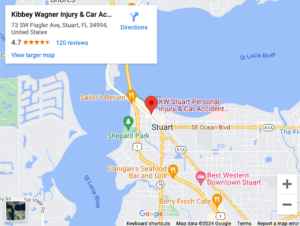
If you are injured because of another person’s negligence or wrongdoing, you may be entitled to receive compensation for your medical expenses, lost wages, and property damage. These losses are tied directly to the accident and can be calculated from an economic standpoint.
However, the law recognizes that you may suffer other losses that are not as easy to quantify. These include loss of quality of life damages.
These damages recognize that you may be impacted by an accident in ways that are just as profound as those that affect you financially. These damages can represent a significant aspect of your personal injury claim and right to compensation.
Types of Damages in Florida Personal Injury Cases

The two major types of damages awarded in Florida personal injury cases include:
Economic Damages
Florida law defines economic damages as financial losses that would not have occurred if the accident did not happen. Examples of economic damages include:
- Past medical expenses
- Future medical expenses
- Wage loss
- Loss of earning capacity
- Costs to repair or replace your damaged vehicle
You may be able to use evidence such as medical bills, pay stubs, and invoices to prove economic damages.
Non-Economic Damages
Non-economic damages are defined under Florida law as non-financial losses that would not have occurred if the accident did not happen. These include:
- Pain and suffering
- Physical impairment
- Mental anguish
- Disfigurement
- Loss of quality of life
- Inconvenience
Oftentimes, non-economic damages comprise the majority of the overall personal injury claim’s value.
What Does Loss of Quality of Life Mean?
A loss of quality of life means that the accident or resulting injuries have caused the accident victim not to be able to enjoy life as they had before the accident. They may not be able to pursue their favorite pastimes, for instance, or their personal relationships may be affected. Loss of capacity for enjoyment of life damages compensates victims for the fact that they can no longer enjoy these activities.
Types of Injuries That Can Cause a Decrease in Quality of Life
Every personal injury is different and can impact victims differently. However, some injuries that are known to cause the loss of capacity for enjoyment of life include:
- Brain injuries
- Spinal cord injuries
- Amputation injuries
- Catastrophic injuries
- Injuries that cause sterility or infertility
- Injuries that cause the loss of sight or hearing
- Scarring or disfiguring injuries
These injuries may cause severe physical limitations or may impact how other people see the victim.
Examples of Loss of Quality of Life
Here are some examples of situations that could cause a loss of quality of life:
- You are hit in a car accident and suffer a spinal cord injury that paralyzes you. You are no longer able to work or travel.
- You fall down and suffer a back injury. You can no longer play with your kids.
- A defective product burns you and leaves you with severe scarring. You are embarrassed to go outside, and your partner breaks up with you.
- A car crashes into you while you are riding your bike. You are too afraid to ever ride a bike again.
- You are injured in a truck accident while you are pregnant. You lose the baby and are told that you can no longer have children.
- You are hurt in a personal injury and now suffer chronic pain that interferes with your daily life.
Florida’s personal injury laws recognize that accident victims can be profoundly impacted in various ways and give them an avenue to seek compensation for them.
Calculating Loss of Quality of Life Damages
The loss of capacity for enjoyment of life is part of a person’s subjective experience after the injury. This is why it is so difficult to quantify the losses. Florida law recognizes this, saying that “there is no exact standard for measuring such damage.” Instead, it instructs jurors to determine an amount that is “fair and just in the light of the evidence.”
As such, jurors may consider various factors when calculating an amount to award a victim who has experienced the loss of capacity for enjoyment of life, such as:
- Age
- Health
- Work history
- Educational background
- Socioeconomic status
- Severity of injuries
- The part of their body where the injury occurred
- Home
- Expected future consequences of the injury
- Activities they can no longer enjoy
- Effect on personal relationships
There is no exact formula for determining these damages. They are determined on a case-by-case basis.
Proving Loss of Quality of Life Damages With Help From an Experienced Stuart Personal Injury Attorney
Because every case is different, the evidence you need to show loss of enjoyment of life will also be different and depend on your individual circumstances and the activities you can no longer enjoy. Examples of evidence that may help establish these losses include:
- Your own testimony about the activities you can no longer enjoy and how your personal relationships were affected because of the accident
- Testimony from friends, family members, and coworkers about how the accident has affected you and your personality
- Testimony from medical experts, economists, or other experts about how these types of injuries may impact victims
- Entries in a journal in which you describe how the injuries affect you each day
An experienced Stuart personal injury lawyer from Kibbey Wagner Injury & Car Accident Lawyers Stuart can help you establish a claim for all damages to which you may be entitled, including the loss of capacity for enjoyment of life. Contact us today at (772) 444-7000 for legal assistance

